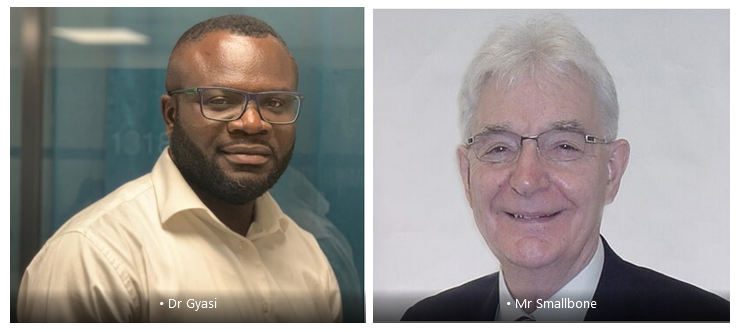Ghana’s National Welding Capability and its significance to the UN Sustainable Development Goals (SDGs)

Welding is an enabling technology used across almost all industries in Ghana and on a wide range of applications: from micro-joining of medical devices, electronics and photonics to larger scale applications such as bridges, buildings, ships, rail, road transport, pressure equipment, mining equipment, oil production platforms and pipelines. The art and science of welding encompasses the total life cycle of welded products/structures including design, manufacture, conformity assessment, inspection and testing, operation, maintenance, repair and decommissioning including recycling and other environmental conditions.
Welding as an industry includes organisations and professionals who supply welding equipment or consumables or materials to be welded; and /or involved with education, training, qualification, certification, research and development, work health and safety (WHS), standards and industrial relations aspects of welding. Welding is critical to the infrastructure of any country and its importance to national economic performance can be shown in numerous ways.
As a member of the United Nations (UN), the Ghanaian Government embraces the UN 2030 Agenda to continuously promote locally, the 17 UN Sustainable Development Goals (SDGs) to improve the quality of lives of Ghanaians and the environment. One of the areas which stands out in improving the quality of lives of humans is welding.
On this premise, the authors of this article have written a report on “Ghana’s National Welding Capability and its significance to the UN Sustainable Development Goals (SDGs)” to show examples of how Ghana welding industry have positively influenced the UN SDGs. The report also gives organisations in the Ghanaian welding industry to assess themselves against the UN SDGs and their commitment to economic development and sustainability.
Ultimately, the report act’s as a catalyst to create a quantum leap in the number of projects, within each SDG, which organizations in the Ghanaian welding industry and associated networks could do in cooperation and collaboration with the Ghanaian government, industry players and aid agencies to achieve the UN SDGs by 2030.


Furthermore, a technical paper entitled “Your Country’s National Welding Capability (NWC) and its significance to the UN Sustainable Development Goals (SDGs)” (by Chris Smallbone, International Institute of Welding (IIW) Past President, allbones@iinet.net.au ) contains many examples and references to various initiatives across welding-related fields which have been or could be introduced for all 17 UN SDGs projects in welding. https://www.scielo.br/j/si/a/tDWHcwCpMB3tFYY4xTXWZWt/?lang=en
It is our intention to collaborate with other welding industry players to draw up mutually beneficial strategies and action plans with the support of the Ghanaian government, industry players and aid agencies for implementation to achieve significant progress in UN SDGs. The formulation of new partnership models that can lead to the success of the SDGs and sustainable development in partner countries corresponds unequivocally to the spirit of the UN 2030 Agenda. Through cooperation and collaboration of all relevant organisations, including using tools initiated by the government and civil society to plan and disseminate the SDGs in localised situations, success will result in reaching as many Ghanaians as possible.
We hope this report will stimulate ideas amongst the Ghanaian welding community for feedback to Dr Emmanuel Afrane Gyasi. Also, if you wish to discuss such ideas further including you and your organisation’s possible contributions to Ghana’s welding industry initiatives, contact: emmanuelgyasi.giw@gmail.com.
Link to download the report: https://giwelding.org/assets/files/Ghanaian%20Institute%20of%20Welding%20Final%20UN%20SDGs%20Report.pdf.
Writers:
Dr Emmanuel Afrane Gyasi, President of Ghanaian Institute of Welding (GIW)
Senior Lecturer, Kumasi Technical University (KsTU)
Mr Chris Smallbone
President of the International Institute of Welding (IIW), from 2005-2008
BY DR EMMANUEL AFRANE GYASI & CHRIS SMALLBONE




